Charles Burnett
Nascimento : 1944-04-13, Vicksburg, Mississippi, USA
História
Charles Burnett is an American film director, producer, writer, editor, actor, photographer, and cinematographer. His most popular films include Killer of Sheep (1977), My Brother’s Wedding (1983), To Sleep with Anger (1990), The Glass Shield (1994), and Namibia: The Struggle for Liberation (2007). He has been involved in other types of motion pictures including shorts, documentaries, and a TV series.
Considered by the Chicago Tribune as “one of America’s very best filmmakers”, and by the New York Times as “the nation’s least-known great filmmaker and most gifted black director”, Charles Burnett has had a long and diverse filmmaking career.
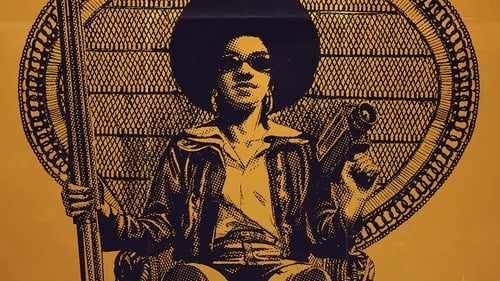
Self
O historiador e crítico cultural Elvis Mitchell traça a evolução e a revolução do cinema negro, de suas origens ao impacto dos filmes da década de 70.

lui-même

Director
A global portrait documenting the year's events, Cinetracts '20 features the work of an international lineup of 20 filmmakers. Capturing the zeitgeist in their own backyard, the artists' short films are the culmination of a year-long residency project.

Himself
O filme retrata a vida do cineasta Charles Burnett, a figura marcante do movimento independente negro dos anos 60, e conta a história dos 50 anos de luta pelos direitos civis nos Estados Unidos.

Director
Tells the poignant chapter in the historic struggle to secure equal and adequate access to healthcare for all Americans. Central to the story is the tale of how a new national program, Medicare, was used to mount a dramatic, coordinated effort that desegregated thousands of hospitals across the country in a matter of months.

Self
How did America change from Easy Rider into Donald Trump? What became of the dreams and utopias of the 1960's and 1970's? What do the people who lived in that golden age think about it today? Did they really blow it? Shot in Cinemascope - from New Jersey to California - this melancholic and elegiac road-movie draws upon the portrait of a confused, complex and incandescent America one year after the start of the electoral campaign. That golden age has become its last romantic border and an inconsolable America is about to pull on a trigger called Trump.

What does it mean to be Black in America in the 21st century? The recently formed Black American film group TNEG™ has set out to elucidate this very question. Hearing from the likes of fine artist Kara Walker and musical artist Flying Lotus, the film is based on a deceptively simple approach -- asking a refined list of black 'specialists' as well as 'uncommon folks' questions about what they think, and more importantly as lead director Arthur Jafa states, 'What they KNOW' -- the film is an unprecedented 'stream of the black consciousness' and a strikingly original and rarefied look at black intellectual and emotional life. What's so unorthodox about this simple approach is that the interviews were recorded separately from the images in the film. What results is a breathtaking, kaleidoscopic look of American black life from the dawn of three original filmmakers.

Self
Tells the history and importance of The National Film Registry, a roll call of American cinema treasures that reflects the diversity of film, and indeed the American experience itself.

Director
An omnibus of 42 short films by auteur directors based on Dreams.

Director
After the death of his father, a former football star reunites with the family that he abandoned years earlier.

Producer
A teenage boy leaves a moment of boredom while his father works on his old car, and the mother wishes to go out for a stroll around the block. One more relocated family post Hurricane Katrina.

Editor
A teenage boy leaves a moment of boredom while his father works on his old car, and the mother wishes to go out for a stroll around the block. One more relocated family post Hurricane Katrina.

Cinematography
A teenage boy leaves a moment of boredom while his father works on his old car, and the mother wishes to go out for a stroll around the block. One more relocated family post Hurricane Katrina.

Writer
A teenage boy leaves a moment of boredom while his father works on his old car, and the mother wishes to go out for a stroll around the block. One more relocated family post Hurricane Katrina.

Director
A teenage boy leaves a moment of boredom while his father works on his old car, and the mother wishes to go out for a stroll around the block. One more relocated family post Hurricane Katrina.

Writer
Namibia: The Struggle for Liberation is a 2007 epic film on the Namibian independence struggle against South African occupation as seen through the life of Sam Nujoma, the leader of the South-West Africa People's Organisation and the first president of the Republic of Namibia.

Director
Namibia: The Struggle for Liberation is a 2007 epic film on the Namibian independence struggle against South African occupation as seen through the life of Sam Nujoma, the leader of the South-West Africa People's Organisation and the first president of the Republic of Namibia.

Writer
Director Charles Burnett (Killer of Sheep, My Brother's Wedding, To Sleep with Anger) presents a tale about a young boy's encounter with his family in Mississippi in the 1950s, and intergenerational tensions between the heavenly strains of gospel and the devilish moans of the blues.

Director
Director Charles Burnett (Killer of Sheep, My Brother's Wedding, To Sleep with Anger) presents a tale about a young boy's encounter with his family in Mississippi in the 1950s, and intergenerational tensions between the heavenly strains of gospel and the devilish moans of the blues.

Lucinda
In 1831, Nat Turner led a slave rebellion in the United States that resulted in the murder of local slave owners and their families, the eventual execution of 55 rebels and the retribution lynching of more than 200 innocent slaves. Nat Turner: A Troublesome Property examines how the story of Turner’s revolt has been interpreted throughout history and how it continues to raise new questions about the nature of terrorism and other forms of violent resistance to oppression. The film adopts an innovative structure by interspersing documentary footage and interviews with dramatizations of these different versions of Turner’s story. A unique collaboration between MacArthur Genius Award feature director Charles Burnett, acclaimed historian of slavery Kenneth S. Greenberg and Academy Award-nominated documentary producer Frank Christopher, Nat Turner is a compelling look at one of history’s most mysterious figures.

Writer
In 1831, Nat Turner led a slave rebellion in the United States that resulted in the murder of local slave owners and their families, the eventual execution of 55 rebels and the retribution lynching of more than 200 innocent slaves. Nat Turner: A Troublesome Property examines how the story of Turner’s revolt has been interpreted throughout history and how it continues to raise new questions about the nature of terrorism and other forms of violent resistance to oppression. The film adopts an innovative structure by interspersing documentary footage and interviews with dramatizations of these different versions of Turner’s story. A unique collaboration between MacArthur Genius Award feature director Charles Burnett, acclaimed historian of slavery Kenneth S. Greenberg and Academy Award-nominated documentary producer Frank Christopher, Nat Turner is a compelling look at one of history’s most mysterious figures.

Director
In 1831, Nat Turner led a slave rebellion in the United States that resulted in the murder of local slave owners and their families, the eventual execution of 55 rebels and the retribution lynching of more than 200 innocent slaves. Nat Turner: A Troublesome Property examines how the story of Turner’s revolt has been interpreted throughout history and how it continues to raise new questions about the nature of terrorism and other forms of violent resistance to oppression. The film adopts an innovative structure by interspersing documentary footage and interviews with dramatizations of these different versions of Turner’s story. A unique collaboration between MacArthur Genius Award feature director Charles Burnett, acclaimed historian of slavery Kenneth S. Greenberg and Academy Award-nominated documentary producer Frank Christopher, Nat Turner is a compelling look at one of history’s most mysterious figures.

Director
When an 11 year old boy gets cut from his Little League baseball team, he sets out to form his own team.

Director
A woman who believes a dead composer is in love with her falls in love with a man who constantly fights an imaginary man named Hank.
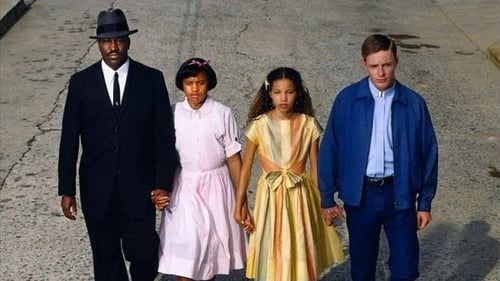
Director
In 1965 Alabama, an 11 year old girl is touched by a speech by Martin Luther King, Jr. and becomes a devout follower. But her resolution is tested when she joins others in the famed march from Selma to Montgomery.

Director
Shelby Coles (Halle Berry) is engaged to marry talented white jazz musician Meade Howell, but the pair face opposition from both Meade's family, who object to an inter-racial marriage, and Shelby's parents, who want her to marry a professional. As Shelby is afflicted by pre-marital doubts, handsome Lute McNeil arrives on the scene, determined to make Shelby his at any cost.

Writer
This video work intermingles fiction with actuality in a poignant confrontation with homelessness.

Cinematography
This video work intermingles fiction with actuality in a poignant confrontation with homelessness.

Director
This video work intermingles fiction with actuality in a poignant confrontation with homelessness.

Director
Numa fazenda no sul dos EUA, a menina analfabeta Sarny tem a chance de realizar o sonho de se educar quando um escravo letrado chega ao rancho e promete ensinar-lhe o alfabeto. Mas a busca pelo saber pode custar caro ao professor e à pupila.

Writer
No dia de ano-novo, um griô urbano (interpretado por Ayuko Babu, cofundador do Pan African Film Festival) embarca em uma jornada por seu bairro em busca de amigos que possam ajudá-lo a arrecadar o dinheiro do aluguel da moradia de uma jovem mulher (Florence Bracy), para evitar que ela e sua filha sejam despejadas. A ajuda, no final, vem de um encontro inesperado. Quando Chove é um belo retrato musical da vida cotidiana da comunidade negra de South Central, Los Angeles - cenário de vários filmes de Burnett, como O Matador de Ovelhas (1977) e O Casamento de Meu Irmão (1983). O crítico Jonathan Rosenbaum classificou o filme como um dos melhores de todos os tempos e escreveu: "Este é um dos raros momentos do cinema em que o jazz influencia diretamente a narrativa do filme."

Director
No dia de ano-novo, um griô urbano (interpretado por Ayuko Babu, cofundador do Pan African Film Festival) embarca em uma jornada por seu bairro em busca de amigos que possam ajudá-lo a arrecadar o dinheiro do aluguel da moradia de uma jovem mulher (Florence Bracy), para evitar que ela e sua filha sejam despejadas. A ajuda, no final, vem de um encontro inesperado. Quando Chove é um belo retrato musical da vida cotidiana da comunidade negra de South Central, Los Angeles - cenário de vários filmes de Burnett, como O Matador de Ovelhas (1977) e O Casamento de Meu Irmão (1983). O crítico Jonathan Rosenbaum classificou o filme como um dos melhores de todos os tempos e escreveu: "Este é um dos raros momentos do cinema em que o jazz influencia diretamente a narrativa do filme."

Writer
J.J. is a rookie in the Sheriff's Department and the first black officer at that station. Racial tensions run high in the department as some of J.J.'s fellow officers resent his presence. His only real friend is the other new trooper, the first female officer to work there, who also suffers similar discrimination in the otherwise all-white male work environment. When J.J. becomes increasingly aware of police corruption during the murder trial of Teddy Woods, whom he helped to arrest, he faces difficult decisions and puts himself into grave personal danger in the service of justice.

Director
J.J. is a rookie in the Sheriff's Department and the first black officer at that station. Racial tensions run high in the department as some of J.J.'s fellow officers resent his presence. His only real friend is the other new trooper, the first female officer to work there, who also suffers similar discrimination in the otherwise all-white male work environment. When J.J. becomes increasingly aware of police corruption during the murder trial of Teddy Woods, whom he helped to arrest, he faces difficult decisions and puts himself into grave personal danger in the service of justice.

Camera Operator
Sa-I-Gu, literally translated in Korean as April 29, is the day of the 1992 Los Angeles riots or uprising. Three months after the events, the documentary explores the experience of several Korean American women who were caught in the events.

Cinematography
Looks at the United States as it becomes an increasingly diverse nation. Tracing the history of significant changes in the Immigration and Nationality Act beginning in 1965, this program introduces a dramatic vision of a multi-cultural America where people of color are the new majority. The feelings and stories of ordinary people are featured in everyday context in six cities across the county. Interviews with residents of Chicago, Houston, Philadelphia, Miami and several other places probe the changing relationships between newcomers and established residents.

Writer
Looks at the United States as it becomes an increasingly diverse nation. Tracing the history of significant changes in the Immigration and Nationality Act beginning in 1965, this program introduces a dramatic vision of a multi-cultural America where people of color are the new majority. The feelings and stories of ordinary people are featured in everyday context in six cities across the county. Interviews with residents of Chicago, Houston, Philadelphia, Miami and several other places probe the changing relationships between newcomers and established residents.

Director
Looks at the United States as it becomes an increasingly diverse nation. Tracing the history of significant changes in the Immigration and Nationality Act beginning in 1965, this program introduces a dramatic vision of a multi-cultural America where people of color are the new majority. The feelings and stories of ordinary people are featured in everyday context in six cities across the county. Interviews with residents of Chicago, Houston, Philadelphia, Miami and several other places probe the changing relationships between newcomers and established residents.
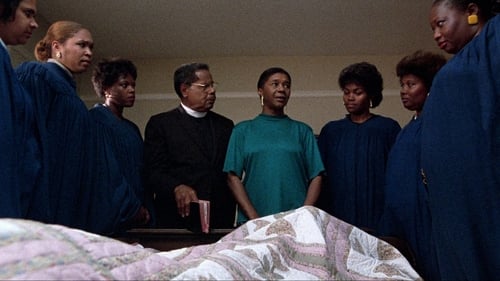
Writer
Com o tempo, ele começa a manipular os membros da família, provocando confusão e ódio.

Director
Com o tempo, ele começa a manipular os membros da família, provocando confusão e ódio.

Director of Photography
With dreams of fame and fortune, Faith goes to Washington where she quickly discovers that the life of a budding starlet can be tougher than the ghetto hell she left behind.

Director of Photography
Conflicts arise when a middle aged African American school teacher decides to visit her father's homeland of communist Cuba.
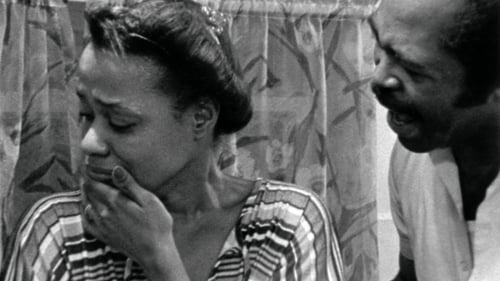
Director of Photography
Charlie Banks, chronically unemployed, struggles to find dignity and a meaning for life in poorer districts of South Central Los Angeles.

Writer
Charlie Banks, chronically unemployed, struggles to find dignity and a meaning for life in poorer districts of South Central Los Angeles.
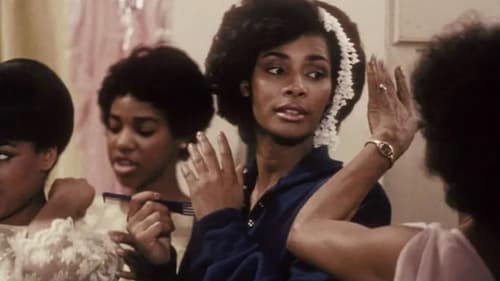
Director of Photography
A man who despises his upwardly mobile lawyer brother reluctantly agrees to be best man at his wedding.

Producer
A man who despises his upwardly mobile lawyer brother reluctantly agrees to be best man at his wedding.

Writer
A man who despises his upwardly mobile lawyer brother reluctantly agrees to be best man at his wedding.

Director
A man who despises his upwardly mobile lawyer brother reluctantly agrees to be best man at his wedding.
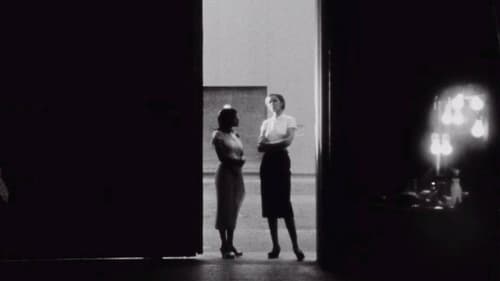
Editor
A woman in a Hollywood dubbing studio struggles with race and preconceptions.

Cinematography
Alana (Margot Saxton-Federella) é uma jovem que trabalha em um escritório enquanto desenvolve estudos de pintura. Seu cotidiano é marcado pelo esforço em se tornar uma mulher independente e se rebelar contra as convenções impostas por uma sociedade machista e racista. Seu colega de escritório e amigo, Vincent (Michael Adisa Anderson), parece o parceiro ideal nessa busca por construir autonomamente uma outra imagem de negritude. A amizade entre os dois parece contrariar os estereótipos e subverter as expectativas de todos ao redor, até o momento em que, enquanto Alana dorme a seu lado, Vincent se aproveita da situação e tenta estuprá-la.

Cinematography
In the course of a botched purse-snatching, a boy comes to question the path of his life. Billy Woodberry’s second film, and first completed in 16mm, adapts Langston Hughes’ short story, Thank You, Ma’am, and features music by Leadbelly, Thelonious Monk and Miles Davis. (Ross Lipman)

Cinematography
The story of Dorothy and her husband T.C. He is a discharged Vietnam veteran who thought he would return home to a "hero's welcome." Instead he is falsely arrested and imprisoned for a crime he didn't commit. Her life revolves around the welfare office and a community facing poverty and unemployment. As a result of the film's events, both the main characters become radicalized and Dorothy eventually turns to violence.

Editor
A single mother ekes out a living from welfare check to welfare check, struggling to provide for her daughter.

Director of Photography
A single mother ekes out a living from welfare check to welfare check, struggling to provide for her daughter.
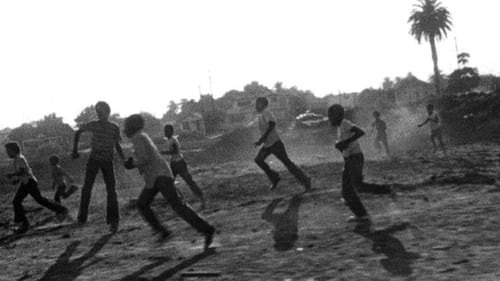
Director of Photography
Stan works in drudgery at a slaughterhouse. His personal life is drab. Dissatisfaction and ennui keep him unresponsive to the needs of his adoring wife, and he must struggle against influences which would dishonor and endanger him and his family.

Editor
Stan works in drudgery at a slaughterhouse. His personal life is drab. Dissatisfaction and ennui keep him unresponsive to the needs of his adoring wife, and he must struggle against influences which would dishonor and endanger him and his family.

Producer
Stan works in drudgery at a slaughterhouse. His personal life is drab. Dissatisfaction and ennui keep him unresponsive to the needs of his adoring wife, and he must struggle against influences which would dishonor and endanger him and his family.

Writer
Stan works in drudgery at a slaughterhouse. His personal life is drab. Dissatisfaction and ennui keep him unresponsive to the needs of his adoring wife, and he must struggle against influences which would dishonor and endanger him and his family.

Director
Stan works in drudgery at a slaughterhouse. His personal life is drab. Dissatisfaction and ennui keep him unresponsive to the needs of his adoring wife, and he must struggle against influences which would dishonor and endanger him and his family.

Editor
This critically acclaimed 1973 short is about an aristocratic white farming family who has a horse that is being put away, by the father of a young black boy named William. William cares for said horse in its last moments, as the male family members eagerly wait for his dad to arrive.

Producer
This critically acclaimed 1973 short is about an aristocratic white farming family who has a horse that is being put away, by the father of a young black boy named William. William cares for said horse in its last moments, as the male family members eagerly wait for his dad to arrive.

Writer
This critically acclaimed 1973 short is about an aristocratic white farming family who has a horse that is being put away, by the father of a young black boy named William. William cares for said horse in its last moments, as the male family members eagerly wait for his dad to arrive.

Director
This critically acclaimed 1973 short is about an aristocratic white farming family who has a horse that is being put away, by the father of a young black boy named William. William cares for said horse in its last moments, as the male family members eagerly wait for his dad to arrive.

Editor
An improvised late '60's short-subject student film, and debut movie of Charles Burnett; done in the neo-realist, documentary film style. A day-in-the-life South Central L.A. tale about a rag-tag group of unemployed black male pals.

Producer
An improvised late '60's short-subject student film, and debut movie of Charles Burnett; done in the neo-realist, documentary film style. A day-in-the-life South Central L.A. tale about a rag-tag group of unemployed black male pals.

Writer
An improvised late '60's short-subject student film, and debut movie of Charles Burnett; done in the neo-realist, documentary film style. A day-in-the-life South Central L.A. tale about a rag-tag group of unemployed black male pals.

Director
An improvised late '60's short-subject student film, and debut movie of Charles Burnett; done in the neo-realist, documentary film style. A day-in-the-life South Central L.A. tale about a rag-tag group of unemployed black male pals.

Cinematography
Filmmaker Thomas Penick explores race, gender and violence in this provocative, disturbing drama set on a hot, summer day in 1969. When a woman accepts a ride from two men at the corner of Western and Adams, the encounter quickly turns ugly, venturing into painful, surreal territory.

















